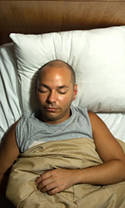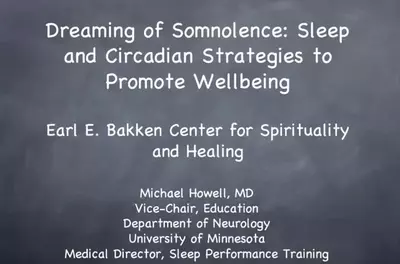What Affects Sleep?

Several factors—many of which you can control—affect the quality of sleep you get each night.
 Stress can keep you up at night, worrying over problems, relationships, deadlines, and frustrations. An American Psychological Association survey found that 43 percent of adults reported losing sleep over stress
Stress can keep you up at night, worrying over problems, relationships, deadlines, and frustrations. An American Psychological Association survey found that 43 percent of adults reported losing sleep over stress- Your sleep environment—This includes exposure to light and noise before going to bed, how secure and safe you feel in the area where you sleep, how comfortable your bed and the temperature of the room is amongst others. Mental Health and Sleep affect each other. Poor mental health harms sleep quality, while bad sleep quality worsens mental health.
- A new study suggests that your relationships affect your sleep more than you know as well. Feeling irritable or angry with a loved one, particularly a family member, can keep you up at night.
- What foods you eat, including products containing caffeine or alcohol, can disrupt sleeping patterns.
- Chronic medical conditions, such as liver disease, heart failure, arthritis, Parkinson's, chronic pain and cancer, can all change your sleep. Some common medications also have an effect on sleep.
What Do Experts Recommend for Healthy Sleep?
Sleep patterns change throughout life, with babies, children, and adolescents needing more sleep than adults. The CDC has a handy chart that outlines how much sleep is required based on age group.
Overall, experts generally agree that adults need 7-9 hours of sleep each night. Too much or too little can have negative health consequences.
As you begin to pay more attention to your own sleep patterns, you will see how different aspects of your life affect and are affected by sleep. To get 7-9 hours of quality sleep each night, experts recommend that you:
- Honor your body’s need for sleep. Don’t trade staying awake for sleep. If you feel as though you don’t have enough time to accomplish everything, see where else you can cut out—watching screens in the evening, for example—and make sleep a nonnegotiable priority.
- Stay Active during the day. Regular exercise and active, stimulating social lives during the day improve nighttime sleep and can help with sleep disorders such as insomnia and restless legs syndrome (RLS). Tai chi and yoga may have particularly powerful benefits if you are having trouble sleeping—they offer physical exercise and create a sense of relaxation that facilitates sleep.
- Nurture relationships with loved ones. Ever try to fall asleep after an argument? Research shows that troubled family relationships can disrupt sleep. Make cultivating healthy connections with your family and loved ones a priority, practicing deep listening, gratitude, and good communication skills.
- Create a sleep routine. Having a healthy ritual every night before bed can help to remind the body that it’s time to prepare to sleep and lull the mind into a restful state. Harvard’s Healthy Sleep program recommends making your nighttime routine as stress-free as possible—take a hot bath, meditate, or read a good book before turning out the lights. Try to go to bed and wake up at the same time each day, even on weekends.
- Monitor your diet and avoid stimulants and alcohol late in the day. Resist that cup of coffee late in the day, no matter how tempting it may be. Caffeine affects everyone differently, but you can generally expect its effects to last 6-10 hours after consumption which can disrupt your sleep cycle, making you even sleepier the next day (which may cause you to consume more caffeine!). Ensure you are eating healthy foods and avoid a heavy meal as well as alcohol in the hours before bedtime.
- Comfortable bedroom. A comfortable bedroom can greatly improve your sleeping experience. The room should be cool, dark and quiet. Additionally, ensure your bed is comfortable. If you are constantly having back aches, invest in a highly supportive mattress or one with pressure relieving layers.
While there are several tips to improve sleep, the few strategies above should be able to significantly improve your sleep quality. If you are still having trouble sleeping in spite of following the tips above, schedule an appointment with a sleep expert to check for any underlying health issues.
Learn more

Sleep and Wellbeing
Learn why sleep is so important and strategies to enhance your sleep with Dr. Michael Howell, Department of Neurology at the University of Minnesota, and Director of the Sleep Performance Training Institute.
http://healthysleep.med.harvard.edu/healthy/science/how/external-factors
Ailshire, J.A, Burgard, S.A. (2012).Family relationships and troubled sleep among U.S. adults: examining the influences of contact frequency and relationship quality. Journal of Health and Social Behavior, 53(2) 248–262.
De Cruz, S., Espiritu, J.R., Zeidler, M., Wang, T.S. (2012). Sleep disorders in chronic liver disease. Seminars in Repiratory and Critical Care Medicine; 33(1):26-35.
Irwin, M.R., Olmstead, R., Carrillo, C., Sadeghi, N., Fitzgerald, J.D., Ranganath, V.K., Nicassio, P.M. (2012). Sleep loss exacerbates fatigue, depression, and pain in rheumatoid arthritis. Sleep;35(4):537-43.
Najafi, M.R., Chitsaz, A., Askarian, Z., Najafi, M.A. (2013). Quality of sleep in patients with Parkinson's disease. International Journal of Preventative Medicine;4(Suppl 2):S229-33.
’12 factors affecting sleep and your sleep quality’, sleepadvisor.org, Retrieved from https://www.sleepadvisor.org/sleep-factors/
“Stress and Sleep”. American Psychological Association. 2013.
‘How much sleep do I need’ , Center for Disease Control and Prevention, Retrieved from: https://www.cdc.gov/sleep/about_sleep/how_much_sleep.html
‘Yoga- What you need to know’, National Center for Complementary and Integrative Health, August 2023, Retrieved from: https://www.nccih.nih.gov/health/yoga-what-you-need-to-know#:~:text=Yog….
‘Sleep health education’, Division of sleep medicine, Harvard Medical School, Retrieved from https://sleep.hms.harvard.edu/education-training/public-education/sleep…





